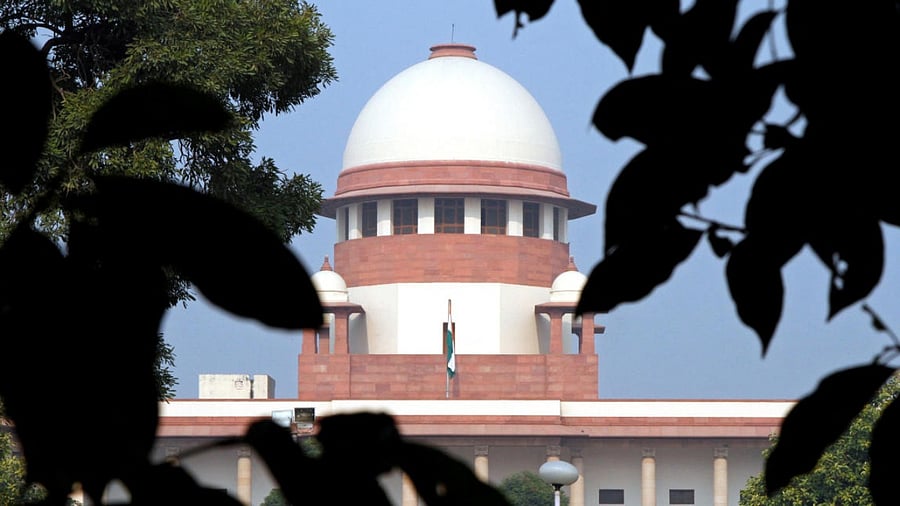
Supreme Court of India.
Credit: PTI Photo
New Delhi: The Supreme Court has said omission to frame charge does not disable the court from convicting the accused for the offence which is found to have been proved on the evidence on record.
A bench of Justices S Ravindra Bhat and Aravind Kumar convicted Parangouda and his wife, aged 66 and 61 years respectively, for the offence of driving their daughter-in-law to end life by suicide under Section 306 of the IPC, even though the charge was not framed against them.
The bench said the High Court ought to have examined as to whether accused could have been convicted for an offence for which no charge was framed.
In the instant case, the bench noted, "The dying declaration of the deceased would clearly indicate that deceased was mentally traumatised and she was unable to tolerate the torture and harassment meted out by the accused on account of which she committed suicide. It is this taunting or mental torture which she could not withstand and forced her to commit suicide by self-immolation".
The court, however, set free the accused of the offences punishable under Section 304B IPC and Section 3 and 4 of Dowry Prohibition Act, as the prosecution failed to prove the victim was subjected to cruelty or harassment soon before or immediately before her death.
The bench held them guilty for the offence punishable under Section 306 and Section 498A read with Section 34 IPC and sentenced to imprisonment for the period already undergone.
The accused had spent one year, one month and 27 days in prison.
The bench said mere omission on the part of the trial judge to mention Section 306 IPC with 498A would not preclude this court from convicting the accused for the said offence when found proved.
The court rejected the contention of the appellants that none of the prosecution witnesses including the complainant, and father of the deceased, had supported the prosecution case.
The conviction ought not to have been made on the basis of dying declaration of the victim who was admitted to hospital with 70-80 per cent of burn injuries and the doctor who declared her fit to record the statement even didn't mention blood pressure and pulse rate.
The court said the physical disability suffered by the victim on account of the burn injuries sustained would not disentitle her to make the statement.
The deceased got married on May 16, 2010. Her dying declaration was recorded on December 12, 2010, and she succumbed to burn injuries on December 24, 2010.
An FIR was registered for the offences punishable under Section 323, 498A read with Section 34 of IPC and 504 of IPC and Sections 3 and 4 of the DP Act and on her death on December 24, 2010, and Section 304B of IPC was added.
